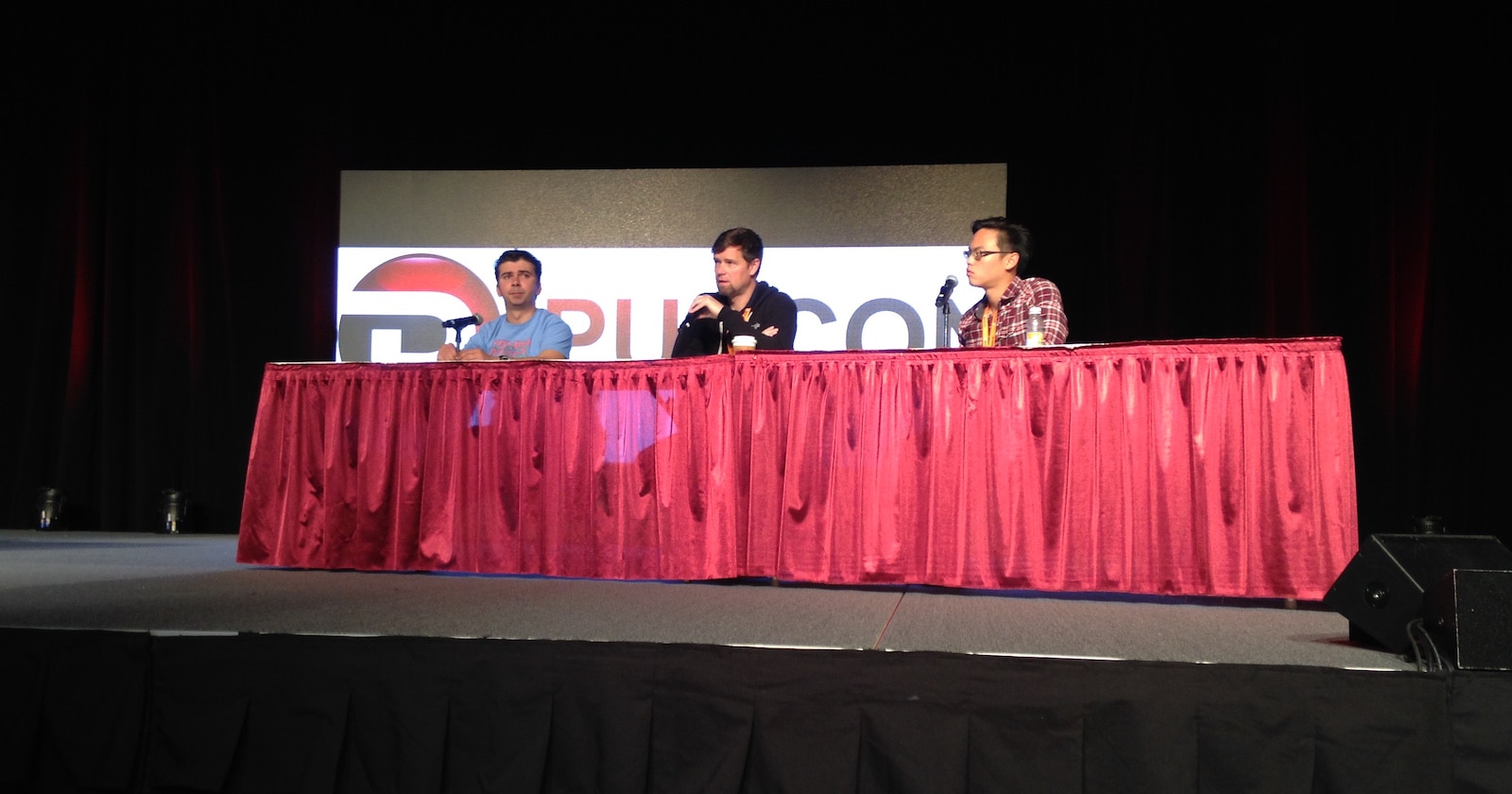Today at Pubcon in Las Vegas, a trio of Googlers – Gary Illyes, Nathan Johns, and Eric Kuan – took the stage for the Google Webmaster Relations keynote to answer questions about a wide range of topics.
Here are some of the interesting tidbits we learned from Google about disavowing links, featured snippets, and more.
1. Don’t Disavow Unless You Have a Manual Action
Is Google smart enough to ignore bad links or should you use the disavow links tool?
According to the Googlers, the smartest way to approach this question is pretty simple:
- If your site gets a manual penalty, then disavow links.
- If your site hasn’t been penalized, you don’t have to worry about disavowing links.
Illyes noted that people care “a bit too much about links,” and Kuan agreed. From the beginning, Google has always said it’s a tool that should be used carefully and with with good judgment.
“I wouldn’t panic about it every day and keep updating it,” Kuan said.
Illyes added that he trusts Google’s system that he doesn’t worry if he gets links from a porn site. Considering how time consuming disavowing links is, especially if you have hundreds of thousands of backlinks, you can probably find something better to do with your time to improve your site.
2. Expect Featured Snippets to Be Volatile
Illyes said you should expect featured snippets to be “volatile” in the near term because it is under active development. This is because people at Google have been coming up with new ideas for the algorithm in order to provide more precise, accurate, and high-quality featured snippets for all devices.
“Even if you get it today, you might lose it in 24 hours because we change something slightly in how we want to trigger it or what conditions a result has to satisfy to be featured. Then 24 hours later you might get it back.”
He said it’s good that people are thinking about how to get featured snippets, but couldn’t offer any official recommendations because the feature is so volatile.
“It would be very irresponsible from our side to say just drop a few unordered lists on your page and that’s how you get a featured snippet, because tomorrow it might be an ordered list.”
3. SEO Pros Are Ready & Willing to Pay Google for Its Link Data
So it sounds like Google has endless resource. So why doesn’t Google provide backlink data via a pro (paid) version of the Search Console. Something like a Majestic, ahrefs, or Moz?
Google has gotten that suggestion before. Johns likes it.
An informal poll of the audience found that just about everyone would pay Google $49 or even $99 a month for such data.
Following this discussion about this multi-million dollar ideas for Google, SEJ contributor Eli Schwartz of SurveyMonkey shared this survey via Twitter:
#pubcon How much would you pay for a pro version of @google Search Console? here’s an actual survey to satisfy @methode need for scientific results. https://t.co/zED0fAsxl3 results will be here: https://t.co/E3Lmh0pBxw cc: @GoogleWebspam @googlewmc
— Eli Schwartz (@5le) November 8, 2017
4. You Really Don’t Have to Worry About Google’s Crawl Budget
One question from the audience was on optimizing crawl budget. Illyes, however, said you really don’t have to care about wasting Google’s resources.
“We have a lot of them,” he said. “Unless you’re the size of Facebook, you don’t have to care about wasting our resources.”
5. Google Uses Post-Click Data Activity
One question from the audience was on whether Google uses any kind of post-click data activity (e.g., bounce rate, dwell time) for ranking purposes.
Johns confirmed that Google uses post-click data but only to evaluate its various algorithms, and whether the changes have resulted in an overall positive change to the search results.
However, that doesn’t mean Google uses post-click data for direct ranking purposes.
6. Keyword Data Isn’t Coming Back
Long-time SEO professionals still really want their keyword data back in Google Analytics that was lost in the era of “(not provided)”. Might we ever get that back?
Don’t expect it, according to Illyes. You’ll just have to use Search Analytics in Google Search Console.
One other keyword feature Illyes mentions might eventually be coming to the Search Console is a way to filter voice search vs. typed queries. He added that they’re “working on convincing the people responsible that publishers need this.”





